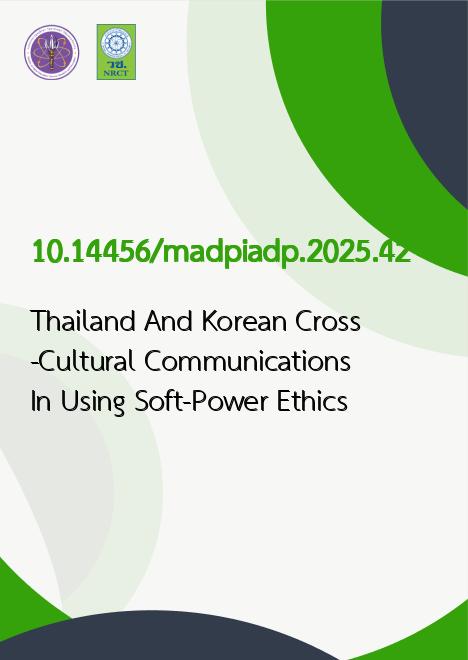
|
Thailand And Korean Cross-Cultural Communications In Using Soft-Power Ethics |
|---|---|
| รหัสดีโอไอ | |
| Creator | Tiwa Park |
| Title | Thailand And Korean Cross-Cultural Communications In Using Soft-Power Ethics |
| Publisher | DR.KET Institute of Academic Development and Promotion |
| Publication Year | 2568 |
| Journal Title | Modern Academic Development and Promotion Journal |
| Journal Vol. | 3 |
| Journal No. | 2 |
| Page no. | 228-248 |
| Keyword | Soft Power, Nation Brand, Diplomacy, Culture, Thailand, Korea, Hallyu |
| URL Website | https://so12.tci-thaijo.org/index.php/MADPIADP/ |
| Website title | https://so12.tci-thaijo.org/index.php/MADPIADP/ |
| ISSN | 2822-1095 |
| Abstract | In the era of globalization, soft power has become a vital tool for developing countries to build international relationships and cultivate alliances. This research conducts a qualitative secondary analysis comparing the core soft power strategies utilized by South Korea and Thailand in their nation-rebranding efforts and cultural diplomacy initiatives. It also examines the fundamental principles, customs, and cultural exports emphasized in each country's soft power approach.The study evaluates the successes and limitations of both strategies through international public opinion polls and global soft power rankings. It further explores how each country tailors its messaging and outreach based on target audiences. The findings reveal that both nations rely on popular media and creative content to enhance international appeal. South Korea emphasizes contemporary pop culture, such as K-dramas and K-pop, to project a modern and dynamic image, whereas Thailand highlights traditional arts and performances to showcase its timeless cultural heritage. Korea adopts a branding strategy cantered on innovation and youthfulness, while Thailand’s approach focuses on hospitality and spiritual harmony. These insights offer valuable implications for scholars and practitioners working on soft power strategies. |